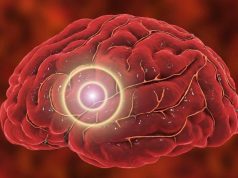Tumors regressed after intracranial infusions of T cells engineered to target tumor-associated antigen
THURSDAY, Dec. 29, 2016 (HealthDay News) — Treatment with autologous chimeric antigen receptor (CAR)-engineered T cells targeting the tumor-associated antigen interleukin-13 receptor alpha 2 (IL13Rα2) is associated with tumor regression in recurrent multifocal glioblastoma, according to a case report published in the Dec. 29 issue of the New England Journal of Medicine.
Christine E. Brown, Ph.D., from the City of Hope Beckman Research Institute and Medical Center in Duarte, Calif., and colleagues describe their clinical experience with a patient with recurrent multifocal glioblastoma who received CAR-engineered T cells. Over 220 days, multiple infusions of CAR T cells were administered through two intracranial delivery routes: infusions into the resected tumor cavity followed by infusions into the ventricular system.
The authors did not observe any toxic effects of grade 3 or higher in association with intracranial infusions of IL13Rα2-targeted CAR T cells. Regression of all intracranial and spinal tumors was observed after CAR T-cell treatment, with corresponding increases in cytokine and immune cell levels in the cerebrospinal fluid. This clinical response persisted for 7.5 months after CAR T-cell treatment initiation.
“We report that autologous CAR T cells targeting IL13Rα2 mediated a transient complete response in a patient with recurrent multifocal glioblastoma, with dramatic improvements in quality of life, including the discontinuation of systemic glucocorticoids and a return to normal life activities,” the authors write.
Full Text (subscription or payment may be required)
Copyright © 2016 HealthDay. All rights reserved.








